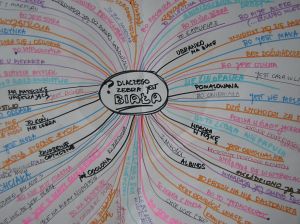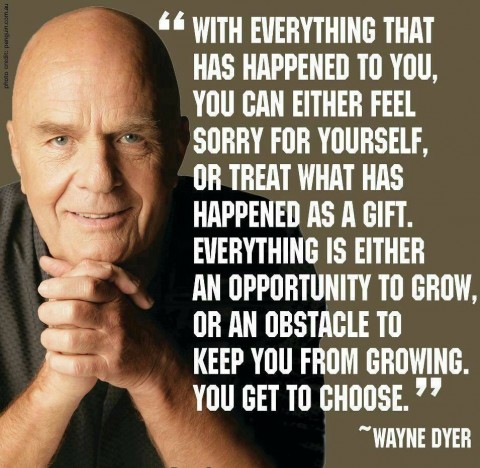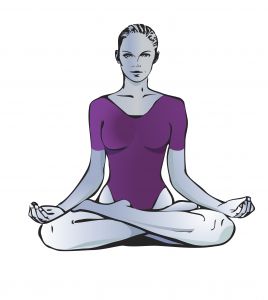1. Finding a Purpose and Setting Intention

Studies have shown that having a purpose gives us intrinsic motivation. As opposed to extrinsic motivation, intrinsic motivation makes one think and behalf more creatively instead of simply going from point A to B with little or no meaning or consideration of the why. Having a purpose creates the spark of passion that is the fuel of success.
When we set an intention, we give ourselves direction, create a framework or blueprint, and it also sets unseen forces in motion. It programs our subconscious to recognize new patterns and make new choices. It also creates a vibrational vacuum that pulls into it the intended result by the Law of Attraction.
“The heart of human excellence often begins to beat when you discover a pursuit that absorbs you, frees you, challenges you, or gives you a sense of meaning, joy, or passion.”
-Terry Orlick
2. Dreaming Big and Making Wishes

Setting goals is a great way to increase motivation. Some people have resistance to actually doing it though, so one way to overcome that is by changing the way you think of the process. We can start by dreaming and visualizing life as we would like it to be. Making wishes is another way to make goal setting more fun and easy.
Most people have believed that being accountable to others makes you more likely to achieve your goals, although some recent research by psychologists has indicated that telling others about our goals makes us less likely to achieve them, because we feel as though we’ve already done it leading to a decrease in motivation.
Remember to write your goals down. Once something is in a tangible form instead of only a thought in the mind, it holds space in physical reality, and radiates and attracts like energy. It’s also good to be reminded of our goals regularly, so having something to look back on for reference is essential. Another benefit of writing them down is being able to track your progress which leads to my next point.
“In my lifetime, I’ve come to realize that you can’t depend upon other people for what you want. You can’t be scared to go out and get it. You have to dream big, wish hard & chase after your goals, because no one is going to do it for you.”
-Cee Lo Green
3. Rewarding Yourself for a Job Well Done
 We can dream, wish, set goals, and talk about what we’re going to do all we want, but we won’t see much result until we start doing the work required. When we find ourselves procrastinating doing the work required to achieve our goals, we can simply make a promise to do something fun and reward ourselves once we’ve completed the task at hand. Whether it be relaxing, eating something delicious, gifting ourselves a present, making more time for our hobbies, or going on adventures. When we do this, we create extrinsic motivation by finding healthy ways to treat ourselves for accomplishing what we set out to do and being the awesome human beings that we are. Follow-through is everything.
We can dream, wish, set goals, and talk about what we’re going to do all we want, but we won’t see much result until we start doing the work required. When we find ourselves procrastinating doing the work required to achieve our goals, we can simply make a promise to do something fun and reward ourselves once we’ve completed the task at hand. Whether it be relaxing, eating something delicious, gifting ourselves a present, making more time for our hobbies, or going on adventures. When we do this, we create extrinsic motivation by finding healthy ways to treat ourselves for accomplishing what we set out to do and being the awesome human beings that we are. Follow-through is everything.
“You get what you reward. Be clear about what you want to get and systematically reward it.”
-Bob Nelson
4. Facing and Embracing Your Fears

Fear can increase our motivation, although it can also decrease it depending on what we’re afraid of. Getting in touch with our fears is a great way to release blockages and limiting beliefs that may be holding us back. Instead of lying to ourselves and denying our fears exist, let’s face them head on, and embrace them with love and understanding. One way is to make a list of everything we’re afraid of, and get to know and accept ourselves as we are. Let us not judge our feelings as wrong or something to be gotten rid of. Everything is there for a reason. Instead of labeling them as wrong or bad, let’s see the value that they offer, and let them go when they no longer serve us. The more we learn to know ourselves including our shadows or apparent weaknesses, the more they become our strengths.
“You can only come to the morning through the shadows.”
-J.R.R. Tolkien
5. Nutrition and Exercise
 Proper nourishment and getting regular exercise are key ingredients to happiness. When we have a clear head from eating nutrient rich/plant based foods, inspiration and motivation will come naturally. If we’re loaded up with unhealthy fast foods, processed foods, high levels of sugar, and harmful fats then we will feel sluggish and depressed which will affect our motivation. Getting exercise raises the endorphin levels and produces a natural state of well-being. From this place, we are more connected to our source, and expressing ourselves creatively and enjoying life to the fullest becomes effortless.
Proper nourishment and getting regular exercise are key ingredients to happiness. When we have a clear head from eating nutrient rich/plant based foods, inspiration and motivation will come naturally. If we’re loaded up with unhealthy fast foods, processed foods, high levels of sugar, and harmful fats then we will feel sluggish and depressed which will affect our motivation. Getting exercise raises the endorphin levels and produces a natural state of well-being. From this place, we are more connected to our source, and expressing ourselves creatively and enjoying life to the fullest becomes effortless.
“Physical fitness is not only one of the most important keys to a healthy body, it is the basis of dynamic and creative intellectual activity.”
-John F. Kennedy
6. Love and Gratitude
 Make lists about all the things you love and give thanks for. The more we stay in a state of love and appreciation, the easier it will be to think positively and keep moving in the right direction throughout our day and life. It only takes a few negative thoughts in a row to trigger a fight-or-flight response thus pumping our bodies full of stress chemicals. Stress has be proven to inhibit digestion, sex drive, and other body functions. The good news is that we can train our minds to break the cycle of negativity. We can choose not to sweat the small stuff. The more we stay in the space of love and gratitude, the more we are training not only our minds but also our feelings to respond to the situations in our lives differently. Being loving and grateful is one of the best things we can do to stay on purpose and increase motivation.
Make lists about all the things you love and give thanks for. The more we stay in a state of love and appreciation, the easier it will be to think positively and keep moving in the right direction throughout our day and life. It only takes a few negative thoughts in a row to trigger a fight-or-flight response thus pumping our bodies full of stress chemicals. Stress has be proven to inhibit digestion, sex drive, and other body functions. The good news is that we can train our minds to break the cycle of negativity. We can choose not to sweat the small stuff. The more we stay in the space of love and gratitude, the more we are training not only our minds but also our feelings to respond to the situations in our lives differently. Being loving and grateful is one of the best things we can do to stay on purpose and increase motivation.
“Gratitude unlocks the fullness of life. It turns what we have into enough, and more. It turns denial into acceptance, chaos to order, confusion to clarity. It can turn a meal into a feast, a house into a home, a stranger into a friend. Gratitude makes sense of our past, brings peace for today, and creates a vision for tomorrow.”
-Innerspace
7. Mind Mapping and Vision Boarding
 Having your dreams and goals represented visually can help you stay focused on achieving them.
Having your dreams and goals represented visually can help you stay focused on achieving them.
Mind mapping is simply the process of creating branches with nodes that each contain one word or concept. It works the same way our brains do by association and imagery. Use colors, curved lines, and images to make your mind map more appealing to the eye. Mind mapping can be used for many things. It’s a great tool for expanding on your ideas and becoming more organized.
Vision boarding is a similar idea in that it’s a visual representation, although it’s done by gathering images of things we’d like to be, do, or have and creating a collage out of them. Look at the vision board regularly, and visualize it as already accomplished. The results can be miraculous.
“Good business leaders create a vision, articulate the vision, passionately own the vision, and relentlessly drive it to completion.”
-Jack Welch
8. Writing and Creative Expression
 By making a commitment to write out our thoughts even if they’re negative, we allow yourself to vent. Noticing the patterns that we see can be an invaluable aid in releasing blockages. Sometimes just by writing down our objections, we solve our own problems. Try making a list of everything negative, and reading it back in the positive. We don’t have to believe it, but over time it will retrain our minds to avoid going into fight-or-flight response.
By making a commitment to write out our thoughts even if they’re negative, we allow yourself to vent. Noticing the patterns that we see can be an invaluable aid in releasing blockages. Sometimes just by writing down our objections, we solve our own problems. Try making a list of everything negative, and reading it back in the positive. We don’t have to believe it, but over time it will retrain our minds to avoid going into fight-or-flight response.
Writing about our goals can be very helpful too. The more clear we get on what they are, the easier it is to move toward them. If we don’t know what we want then how are we ever going to get it? Write it down. Break your larger goals down into smaller steps you can take for the day. Be as specific as possible, and then let it go.
Creative expression is another way to get in the flow. Being creative and doing what we love is a big part of following our purpose. We need to make time to do what we enjoy whether it be playing music, preparing food, painting, yoga, or dancing. Following our passions not only makes us more interesting, but it also makes life more fulfilling. As the saying goes,
“All work and no play makes Jack a dull boy.”
-Proverb
9. Learning New Skills
 Sometimes we can feel like we’re just stuck in a routine, the the truth is that we are. Make time to learn new things. Without new tools to use in our lives, we are limited to where we’re at. Growing, learning, discovering new information, and improving ourselves, we can gain new insights to achieve our goals and live an inspired life. Listen to speakers, read books, research online, watch movies, take classes, go out and get real life experience.
Sometimes we can feel like we’re just stuck in a routine, the the truth is that we are. Make time to learn new things. Without new tools to use in our lives, we are limited to where we’re at. Growing, learning, discovering new information, and improving ourselves, we can gain new insights to achieve our goals and live an inspired life. Listen to speakers, read books, research online, watch movies, take classes, go out and get real life experience.
“Insanity: doing the same thing over and over again and expecting different results.”
-Albert Einstein
10. Getting Out Into Nature
We weren’t meant to live our lives in little boxes looking at brightly lit screens all the time while putting garbage in our mouths. Nature is an excellent healer. By breathing fresh air, putting our bare feet on the earth, walking, running, absorbing sunshine, swimming, and listening to the birds, we can reduce stress and unlock latent potential. Living closely with nature will bring joy, health, creativity, and help us to see the abundance that is all around us. Sometimes taking a break is the best way to get motivated and inspired.

“Nature does not hurry, yet everything is accomplished.”
-Lao Tzu





 Removing Excess Clutter
Removing Excess Clutter I’ve been going to the gym 3 days a week for the last 6 months, and I’m in the best shape of my life. I’ve never given the gym a chance before, but I have a great personal trainer who has shown me the key exercises to build muscle fast. I notice a huge difference in how I feel. My self-confidence is through the roof, and I can feel muscles in my body that I never even paid attention to before. So without further ado, here are the top three exercises I recommend that anyone can do whether they have access to a gym or not.
I’ve been going to the gym 3 days a week for the last 6 months, and I’m in the best shape of my life. I’ve never given the gym a chance before, but I have a great personal trainer who has shown me the key exercises to build muscle fast. I notice a huge difference in how I feel. My self-confidence is through the roof, and I can feel muscles in my body that I never even paid attention to before. So without further ado, here are the top three exercises I recommend that anyone can do whether they have access to a gym or not.
 Ever hear the saying, “Don’t cry over spilled milk?” It means a lot more than may be initially apparent. Often times, people beat themselves up over insignificant mistakes or shortcomings. Sometimes people have a single seemingly negative experience that causes them to form a limiting belief about themselves or the world which hinders their success. These people often appear bitter, jaded or insecure. All it takes is a small shift in thinking to transform their lives. One might tell themselves, “I’m so clumsy! I can’t do anything right.” or they can simply clean the mess and have more positive self-talk like, “It’s okay. That milk was probably going sour anyway.”
Ever hear the saying, “Don’t cry over spilled milk?” It means a lot more than may be initially apparent. Often times, people beat themselves up over insignificant mistakes or shortcomings. Sometimes people have a single seemingly negative experience that causes them to form a limiting belief about themselves or the world which hinders their success. These people often appear bitter, jaded or insecure. All it takes is a small shift in thinking to transform their lives. One might tell themselves, “I’m so clumsy! I can’t do anything right.” or they can simply clean the mess and have more positive self-talk like, “It’s okay. That milk was probably going sour anyway.” Focus on becoming aware of any negative belief patterns that surface in various situations, and take time to remember the earliest event that triggered you to think that way. Then, you can look for evidence to disprove the negative beliefs. For example, if you think you’re too fat to get a girlfriend, look for examples of fat men who have girlfriends. The more you prove to yourself that your fears are irrational, the easier it will be to switch to a more confident mindset.
Focus on becoming aware of any negative belief patterns that surface in various situations, and take time to remember the earliest event that triggered you to think that way. Then, you can look for evidence to disprove the negative beliefs. For example, if you think you’re too fat to get a girlfriend, look for examples of fat men who have girlfriends. The more you prove to yourself that your fears are irrational, the easier it will be to switch to a more confident mindset.


 We can dream, wish, set goals, and talk about what we’re going to do all we want, but we won’t see much result until we start doing the work required. When we find ourselves procrastinating doing the work required to achieve our goals, we can simply make a promise to do something fun and reward ourselves once we’ve completed the task at hand. Whether it be relaxing, eating something delicious, gifting ourselves a present, making more time for our hobbies, or going on adventures. When we do this, we create extrinsic motivation by finding healthy ways to treat ourselves for accomplishing what we set out to do and being the awesome human beings that we are. Follow-through is everything.
We can dream, wish, set goals, and talk about what we’re going to do all we want, but we won’t see much result until we start doing the work required. When we find ourselves procrastinating doing the work required to achieve our goals, we can simply make a promise to do something fun and reward ourselves once we’ve completed the task at hand. Whether it be relaxing, eating something delicious, gifting ourselves a present, making more time for our hobbies, or going on adventures. When we do this, we create extrinsic motivation by finding healthy ways to treat ourselves for accomplishing what we set out to do and being the awesome human beings that we are. Follow-through is everything.
 Proper nourishment and getting regular exercise are key ingredients to happiness. When we have a clear head from eating nutrient rich/plant based foods, inspiration and motivation will come naturally. If we’re loaded up with unhealthy fast foods, processed foods, high levels of sugar, and harmful fats then we will feel sluggish and depressed which will affect our motivation. Getting exercise raises the endorphin levels and produces a natural state of well-being. From this place, we are more connected to our source, and expressing ourselves creatively and enjoying life to the fullest becomes effortless.
Proper nourishment and getting regular exercise are key ingredients to happiness. When we have a clear head from eating nutrient rich/plant based foods, inspiration and motivation will come naturally. If we’re loaded up with unhealthy fast foods, processed foods, high levels of sugar, and harmful fats then we will feel sluggish and depressed which will affect our motivation. Getting exercise raises the endorphin levels and produces a natural state of well-being. From this place, we are more connected to our source, and expressing ourselves creatively and enjoying life to the fullest becomes effortless. Make lists about all the things you love and give thanks for. The more we stay in a state of love and appreciation, the easier it will be to think positively and keep moving in the right direction throughout our day and life. It only takes a few negative thoughts in a row to trigger a fight-or-flight response thus pumping our bodies full of stress chemicals. Stress has be proven to inhibit digestion, sex drive, and other body functions. The good news is that we can train our minds to break the cycle of negativity. We can choose not to sweat the small stuff. The more we stay in the space of love and gratitude, the more we are training not only our minds but also our feelings to respond to the situations in our lives differently. Being loving and grateful is one of the best things we can do to stay on purpose and increase motivation.
Make lists about all the things you love and give thanks for. The more we stay in a state of love and appreciation, the easier it will be to think positively and keep moving in the right direction throughout our day and life. It only takes a few negative thoughts in a row to trigger a fight-or-flight response thus pumping our bodies full of stress chemicals. Stress has be proven to inhibit digestion, sex drive, and other body functions. The good news is that we can train our minds to break the cycle of negativity. We can choose not to sweat the small stuff. The more we stay in the space of love and gratitude, the more we are training not only our minds but also our feelings to respond to the situations in our lives differently. Being loving and grateful is one of the best things we can do to stay on purpose and increase motivation. Having your dreams and goals represented visually can help you stay focused on achieving them.
Having your dreams and goals represented visually can help you stay focused on achieving them. By making a commitment to write out our thoughts even if they’re negative, we allow yourself to vent. Noticing the patterns that we see can be an invaluable aid in releasing blockages. Sometimes just by writing down our objections, we solve our own problems. Try making a list of everything negative, and reading it back in the positive. We don’t have to believe it, but over time it will retrain our minds to avoid going into fight-or-flight response.
By making a commitment to write out our thoughts even if they’re negative, we allow yourself to vent. Noticing the patterns that we see can be an invaluable aid in releasing blockages. Sometimes just by writing down our objections, we solve our own problems. Try making a list of everything negative, and reading it back in the positive. We don’t have to believe it, but over time it will retrain our minds to avoid going into fight-or-flight response. Sometimes we can feel like we’re just stuck in a routine, the the truth is that we are. Make time to learn new things. Without new tools to use in our lives, we are limited to where we’re at. Growing, learning, discovering new information, and improving ourselves, we can gain new insights to achieve our goals and live an inspired life. Listen to speakers, read books, research online, watch movies, take classes, go out and get real life experience.
Sometimes we can feel like we’re just stuck in a routine, the the truth is that we are. Make time to learn new things. Without new tools to use in our lives, we are limited to where we’re at. Growing, learning, discovering new information, and improving ourselves, we can gain new insights to achieve our goals and live an inspired life. Listen to speakers, read books, research online, watch movies, take classes, go out and get real life experience.


 “Happiness will never come to those who fail to appreciate what they already have.”
“Happiness will never come to those who fail to appreciate what they already have.”
 By
By  3. Stop worrying. Ask yourself this question: Will the situation that you are facing change or get better if you worry? Worrying will only make things worse. Usually things that you worry about never happen.
3. Stop worrying. Ask yourself this question: Will the situation that you are facing change or get better if you worry? Worrying will only make things worse. Usually things that you worry about never happen. 11. Let go of the Ego.
11. Let go of the Ego. 16. Meditate. Spend at least half an hour everyday meditating. You will feel refresh and more centered. Meditation helps to relax your body, thus removing stress from your body. Meditation helps you to focus better and help to heighten your awareness. Meditation help quieten the mind, thus making you happier.
16. Meditate. Spend at least half an hour everyday meditating. You will feel refresh and more centered. Meditation helps to relax your body, thus removing stress from your body. Meditation helps you to focus better and help to heighten your awareness. Meditation help quieten the mind, thus making you happier.